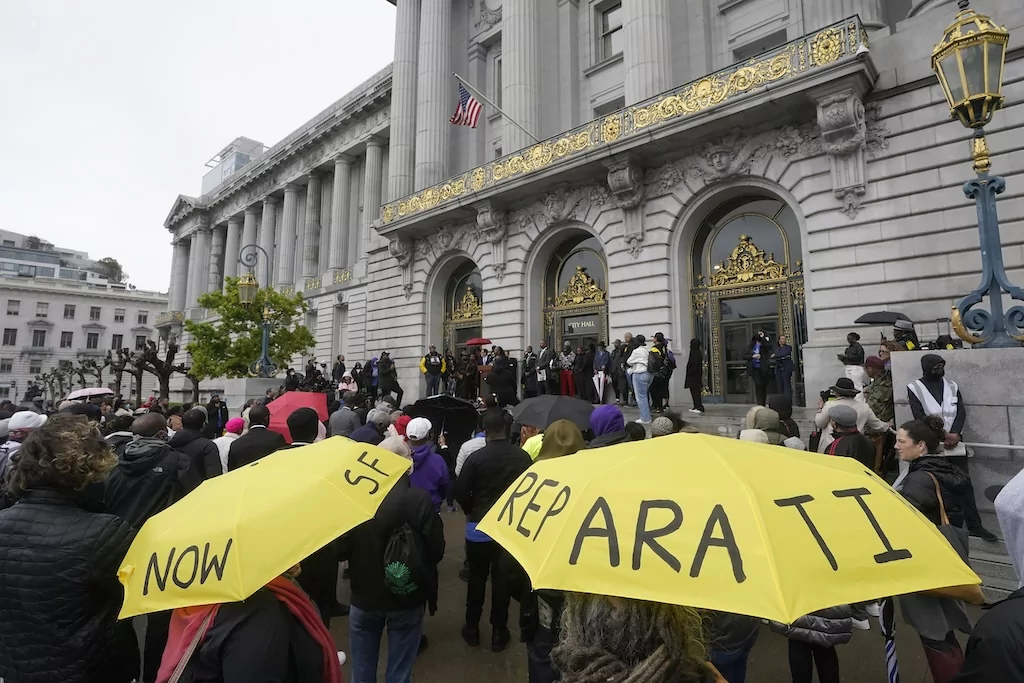

Reparations to descendants of slaves has been a hotly discussed topic in recent years, and two Harvard University professors argue federal reparations would be in line with how the government handles matters.
The study published in The Russell Sage Foundation Journal of the Social Sciences, titled “Normalizing Reparations: U.S. Precedent, Norms, and Models for Compensating Harms and Implications for Reparations to Black Americans,” claims that there is already historic precedent for paying the descendants of black slaves in the country.
The study’s authors, Linda J. Bilmes and Cornell William Brooks, point to various programs that the federal government has implemented to help citizens who have “experienced physical harms or economic loss through no fault of their own.”
“Categories of those harmed who have been compensated include coal miners; farmers whose crops have failed; workers whose companies have gone bankrupt; victims of terrorism and natural disasters; people exposed to nuclear radiation; military veterans; individuals wrongfully convicted in the legal system; people denied earnings on tribal lands; fishermen facing depleted fish stocks; individuals harmed by pesticides, toxins, vaccines, or medical devices; workers and businesses affected by U.S. trade agreements; depositors in banks; and numerous other categories,” according to the study.
The authors explain that these prior efforts paved the way for slavery reparations to be enacted, and they also discuss how funding is less of a problem than opponents claim.
“A key finding of our research is that the federal government draws on designated fees, trust funds, excise taxes, subsidized insurance premiums, and customized financial arrangements to help pay for the wide system of reparatory compensation,” the pair said, pointing to the federal government’s 2023 actions to protect those affected by the collapse of Silicon Valley Bank.
“The existence of these programs shows not only the creativity of the federal government in devising methods of compensation, but also the government’s ability to structure and administer programs, to define eligibility standards, and to provide oversight on the distribution of benefits,” according to the study.
Throughout their study, the two professors claim the inaction of slavery reparations could be solved through already established measures and argue that black citizens are one of the few groups who have not received compensation from the government.
“The numerosity and diversity of reparatory compensation programs makes clear that reparations for nonracial harms is regular and routine,” they claim. “Juxtaposing the audit of reparatory compensation programs with the taxonomy of reparation-less racial harms makes clear that America provides reparations to nearly everyone but Black Americans, even for comparably severe harms.”
While the study does show programs where people were directly harmed by government action or inaction on matters, one key argument by people opposing slavery reparations has to do with the time elapsed since slavery was outlawed.
With the ratification of the 13th Amendment in 1865, slavery was outlawed in the country and no citizens could be subjected to involuntary servitude or slavery unless it was as punishment for crimes they were duly convicted of. No person from when slavery was lawful is still alive, so opponents of reparations have claimed that these payments would be made from people who did not own slaves to people who were not slaves.
CLICK HERE TO READ MORE FROM THE WASHINGTON EXAMINER
Despite polls showing a majority of adults are against reparations for slave descendants, some states and cities have moved forward in recent years with studies and plans for forms of reparations.
In California, a state commission recommended reparations for alleged harms against black residents from slavery to other policies, while in Evanston, Illinois, reparations have been sent out to black residents for alleged prior harms by the government.






Reparations??? To which slaves?? African, Native American, Irish, Asian, European? Will all those who participated in the Slave trades be held accountable? The relatively small percentage of slave owners in America?? Will the 90% or less of American family’s (of all Ethnicity) who never owned slaves have to contribute? Will the African Americans who owned slaves be required to pay?? And how will that work?? Will they just pay themselves or each other or both?? The African Chiefs, who grew rich by capturing fellow Africans and selling them into slavery? England, who sold Irish prisoners of war as slaves? Parents who have sold their children into slavery? Will the countries around the world that dealt in millions more slaves than America, be held accountable? How will you calculate the percentages between England, Spain, France and Portugal-Prior 1776?? Have you already calculated what Obama’s mother owes him????? Surely you wouldn’t just cater to one race???? Slavery is a sad and disgusting practice from many years gone by. Thankfully it no longer exist in America. Reparations are not a solution for anything but political purpose!!!!!